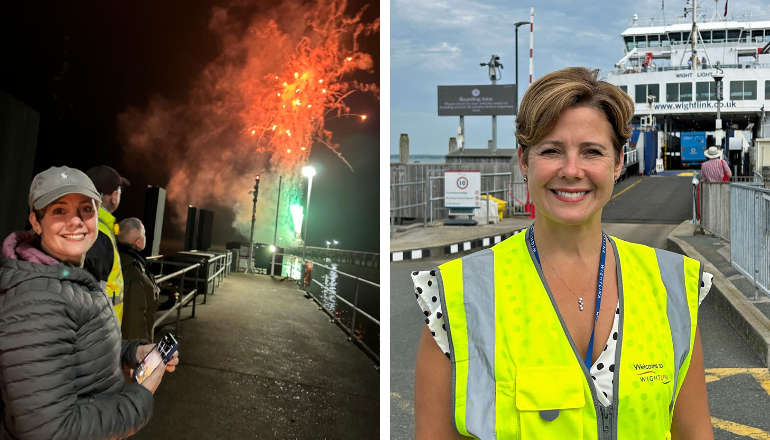A former Premier League footballer has been appointed president of Georgia amid heightening tensions over the country's relationship with Russia.
Mikheil Kavelashvili, 53, was a striker for Manchester City between 1996 and 1997, and later played for several clubs in the Swiss Super League.
He was elected to parliament in 2016, and in 2022 co-founded the People's Power political movement - a splinter group of the ruling Georgian Dream party.
Mr Kavelashvili has strong anti-Western, often conspiratorial views. His election to the mostly ceremonial role sets him up to replace a pro-Western incumbent after weeks of protests against the government's suspension of European Union accession talks.
The ex-footballer was also one of the authors of a controversial law requiring organisations that receive more than 20% of their funding from abroad to register as "pursuing the interest of a foreign power" - similar to a Russian law used to discredit organisations critical of the government.
Mr Kavelashvili easily won the presidential vote as Georgian Dream controls a 300-seat electoral college that replaced direct presidential elections in 2017. It is made up of members of parliament, municipal councils and regional legislatures.
Protesters gathered outside Tbilisi's parliament building in freezing conditions after Mr Kavelashvili's appointment on Saturday morning.
Many brought their university diplomas with them - after criticism that Mr Kavelashvili lacks higher education - while others kicked footballs and waved red cards.
Protester Vezi Kokhodze described today's vote as "treason" against what he said was Georgians' desire to integrate with the West.
"Today's election represents the clear wish of the system to bring Georgia back to its Soviet roots," he said.
Another protester, Sandro Samkharadze, said: "[Kavelashvili] is not elected by us. He is controlled by a puppet government, by [ex-prime minister] Bidzina Ivanishvili, by Putin."
Demonstrators have also vowed that the protests will continue. "If [the government] wants to go to Russia, they can go to Russia, because we are not going anywhere. We are staying here," said Kato Kalatozishvili.
Georgian Dream retained control of parliament in an election on 26 October that the opposition alleges was rigged with Moscow's help.
Georgia's outgoing president and main pro-Western parties have since boycotted parliamentary sessions and demanded a rerun of the vote.
Georgian Dream has vowed to continue pushing toward EU accession but also wants to "reset" ties with Russia.
Critics have accused Georgian Dream - established by Bidzina Ivanishvili, a shadowy billionaire who made his fortune in Russia - of becoming increasingly authoritarian and pro-Russian. The ruling party has denied these accusations.
Georgian Dream recently pushed through laws similar to those used by the Kremlin to crack down on freedom of speech and LGBTQ+ rights.
Salome Zourabichvili, a pro-Western politician, has been president since 2018 and has vowed to stay on after her six-year term ends on Monday, describing herself as the only legitimate leader until a new election is held.
In a post on X shortly before the vote, she said her successor's election represented "a mockery of democracy".
Georgian Dream's move to freeze the EU accession process until 2028, abruptly halting a long-standing national goal that is written into the country's constitution, has provoked widespread anger across the country. Opinion polls show that EU membership is overwhelmingly popular.
Thousands have gathered outside parliament every night since the suspension of EU talks on 28 November, with riot police using water cannons and tear gas to disperse crowds. Officers have also assaulted demonstrators and journalists.
The government has repeatedly said the protests represent an attempt to stage a pro-EU revolution and a violent seizure of power, with police detaining hundreds of protesters.
On Friday, parliament approved sweeping new restrictions on protests, hiking fines for participants and organisers, and banning face coverings, fireworks and lasers used to dazzle police officers, at rallies.
The EU, which granted Georgia candidate status in December 2023 on condition the country meets the bloc's recommendations, put its accession on hold and cut financial support in June following approval of the foreign influence law.
Georgia was seen for decades as one of the most pro-Western and democratic of the Soviet Union's successor states, but relations with the West have soured this year over the country's apparent foreign policy pivot and authoritarian drift.
Since the outbreak of the war in Ukraine, Georgian Dream has moved to improve ties with Russia, which ruled Georgia for 200 years until 1991.

(c) Sky News 2024: Former Premier League footballer voted president of Georgia

 How climate change and red tape could be jeopardising UK access to affordable food
How climate change and red tape could be jeopardising UK access to affordable food
 UK economy shrinks again in October, official figures show
UK economy shrinks again in October, official figures show
 Labour's promise to turbocharge economic growth has already hit trouble
Labour's promise to turbocharge economic growth has already hit trouble
 Major shake-up of UK energy system could 'lower bills for good', government says
Major shake-up of UK energy system could 'lower bills for good', government says
 More migrants removed from UK since Labour elected than in any six months since 2019, Home Office says
More migrants removed from UK since Labour elected than in any six months since 2019, Home Office says



 Interview With Wightlink CEO Katy Taylor
Interview With Wightlink CEO Katy Taylor
 Godshill Primary Campaigners And Council Express Relief After Closure U-Turn
Godshill Primary Campaigners And Council Express Relief After Closure U-Turn
 Godshill Primary To Remain Open But Closure Notices Issued For Five Other Island Primary Schools
Godshill Primary To Remain Open But Closure Notices Issued For Five Other Island Primary Schools
 We 'Shal' Not Be Moved: Shalfleet Councillors Release Statement Over Recent Walkouts
We 'Shal' Not Be Moved: Shalfleet Councillors Release Statement Over Recent Walkouts